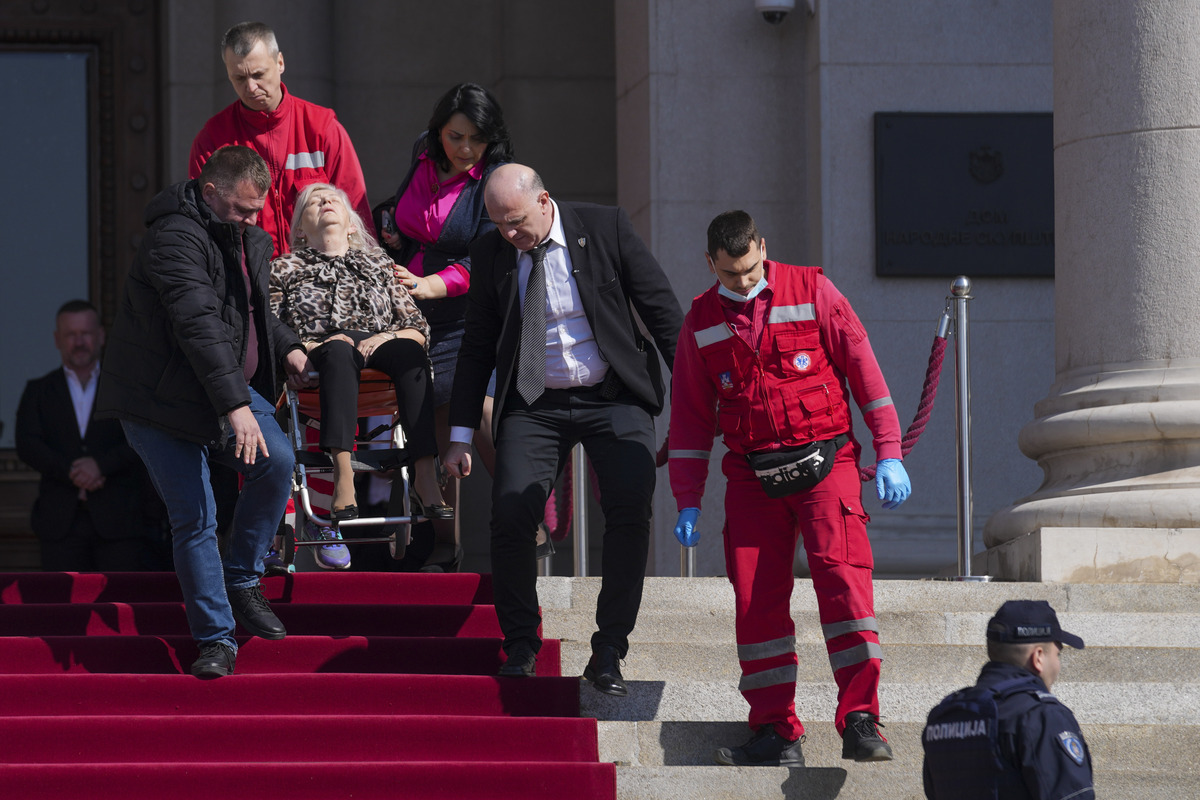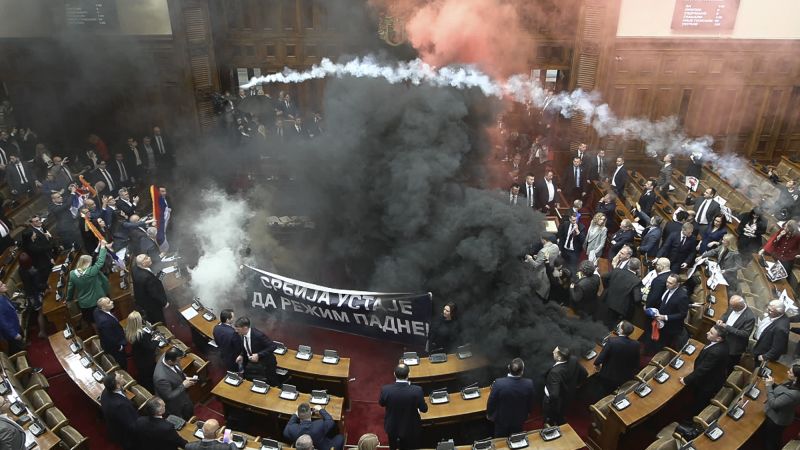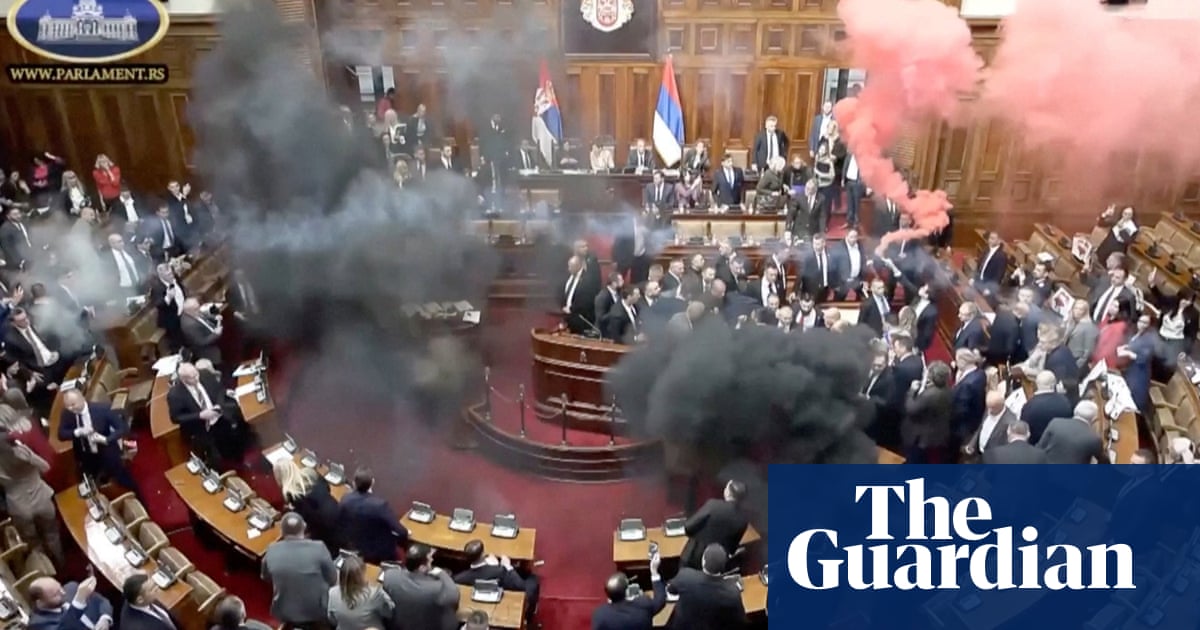Chaos Erupts in Serbian Parliament Amidst Heightened Political Tensions
Opposition lawmakers protested in Serbia’s parliament, using smoke bombs and flares, injuring multiple members. Protests stem from a political crisis following a deadly canopy collapse.
Subscribe to unlock this story
We really don't like cutting you off, but you've reached your monthly limit. At just $5/month, subscriptions are how we keep this project going. Start your free 7-day trial today!
Get StartedHave an account? Sign in
Overview
During a parliamentary session in Serbia, opposition lawmakers clashed with security, throwing smoke grenades and setting off flares, injuring at least three. This incident reflects the ongoing political turmoil fueled by protests against government corruption following a tragic canopy collapse last November that resulted in fifteen deaths. Opposition members demand confirmation of Prime Minister Milos Vučević's resignation, while student-led protests continue to challenge President Aleksandar Vučić’s administration. The unrest forms part of a broader discontent over governance issues, with authorities dismissing the protests and labeling opposition actions as extremist.
Report issue

Read both sides in 5 minutes each day
Analysis
- The political chaos in Serbia's parliament illustrates the rising tensions as opposition lawmakers protest against perceived government corruption fueled by recent tragic events.
- Opposition parties are contesting the legality of parliamentary actions, demanding a transitional government and adherence to democratic processes amidst ongoing public protests.
- The ongoing protests, sparked by a deadly infrastructure collapse, reflect widespread dissatisfaction with the government's handling of repercussions and allegations of corruption.
Articles (5)
Center (2)
FAQ
The protests were triggered by the collapse of a concrete canopy at a railway station in November, which killed 15 people. Critics blamed the incident on government corruption and negligence.
Opposition lawmakers were protesting against the government's attempt to pass new laws without first confirming the resignation of Prime Minister Milos Vučević and his government. They also demanded action on increasing funding for university education.
The government has labeled the opposition's actions as extremist and likened them to a 'terrorist gang.' They have also accused Western intelligence agencies of attempting to destabilize Serbia by supporting the protests.
Prime Minister Milos Vučević resigned in January, but his resignation has not yet been confirmed by parliament. This confirmation is necessary for the resignation to take effect.
History
- This story does not have any previous versions.



